FIFA World Cup, the mega event of the year, is kicking off in June. On top of being a tournament, international sports events such as the World Cup are often considered an “image enhancement exercise” of the host country. These events may even have economic implications. Can Russia, the host country of this year’s FIFA World Cup, benefit from it?
Louis Chan: World Cup favorable for industrial diversification

Russia, the host country of this year’s FIFA World Cup, has already committed more than USD10 billion in the event. Whether actual economic benefits can be reaped are yet to be confirmed. However, Russia can look forward to an upgraded international image and build higher reputation for its co-hosting cities. The event also helps propel the country’s industrial diversification, which would generate positive impact to Russia’s economic development in the long run.
According to the figures of the Russian Federal State Statistics Service, the Consumer Price Index (CPI) in March accelerated by 2.4% year-on-year and met market expectations. The country’s core inflation also slowed down to 1.8% year-on-year from the 1.9% increment that had been going on for a few months. According to Louis Chan, Assistant Principal Economist (Global Research) of the Hong Kong Trade Development Council, these figures reflect an overall generally healthy economy in Russia.
Russian sanctions have limited impact
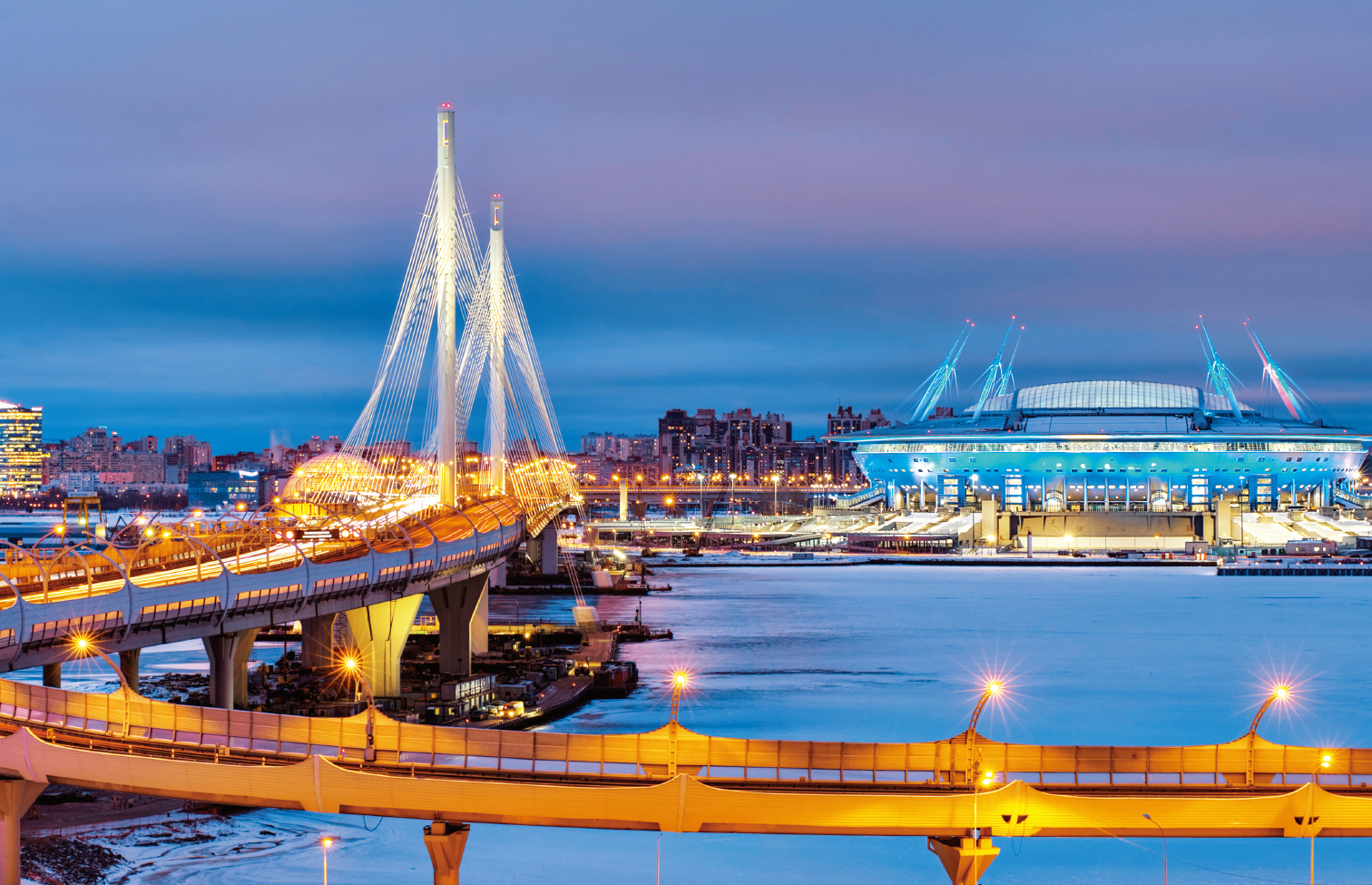 While the US sanctions imposed on some Russian companies triggered a slump in the Russian stock market, Chan pointed out that the impact of the sanctions has not been as big as people guess. In fact, there is no significant drop in the trade statistics between Russia and the US & Europe – some sectors even showed mild increase. Similarly, there is no obvious shrink in the export ratio of the two regions, which shows that Russia has maintained rather normal trade with Europe and the US. However, as some large corporations were put on the sanctions list, it is inevitable that financing is affected, and the confidence of investors and traders are shaken.
While the US sanctions imposed on some Russian companies triggered a slump in the Russian stock market, Chan pointed out that the impact of the sanctions has not been as big as people guess. In fact, there is no significant drop in the trade statistics between Russia and the US & Europe – some sectors even showed mild increase. Similarly, there is no obvious shrink in the export ratio of the two regions, which shows that Russia has maintained rather normal trade with Europe and the US. However, as some large corporations were put on the sanctions list, it is inevitable that financing is affected, and the confidence of investors and traders are shaken.
Comparatively, the fluctuations in oil and commodity prices in the market usually bring more direct and greater impact to the Russian economy. Chan commented, “The Russian government knows very clearly that the trend of oil prices has an overpowering impact on the country’s economy. Therefore, the country has been actively actualizing industrial diversification in recent years, and it has declared the intention to take part in the ‘Belt and Road’ initiative advocated by China to expand sources for generating economic benefits. From this aspect, the biggest reason for Russia to bid to become the host country of FIFA World Cup was more than upgrading its international image. It also hoped to drive industrial diversification in all directions to gain more leverage.”
1.5 million tourists expected
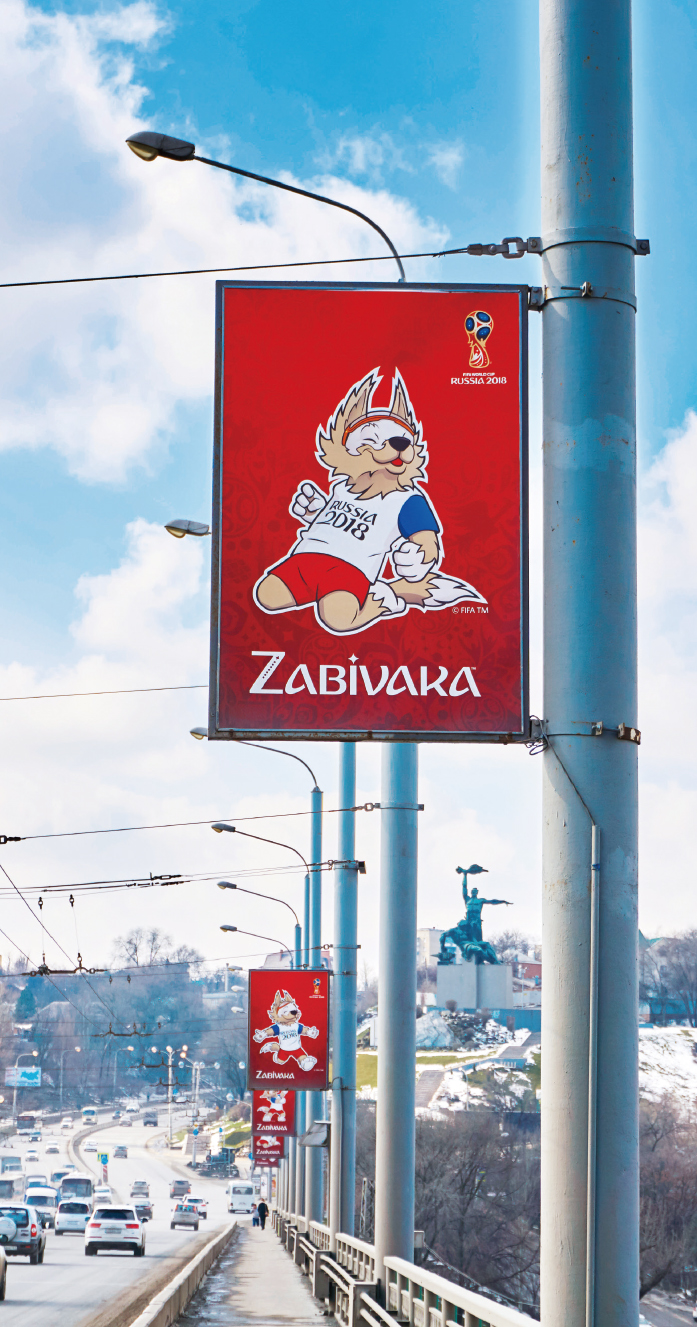 So far, Russia has committed about USD13 billion in organizing the World Cup - an amount similar to the total of USD15 billion spent by the last host country Brazil. Chan pointed out directly that with reference to the host countries of the past World Cup events, there was usually over-expenditure in certain construction projects. Therefore, the final total amount invested by Russia could exceed that of Brazil. “The construction of the Krestovsky Stadium in Saint Petersburg alone cost Russia about USD1.5 billion. Besides, 113 training venues and 11 pitches have been built or renovated. About 60 new hotels were built. The investment amount has been enormous.”
So far, Russia has committed about USD13 billion in organizing the World Cup - an amount similar to the total of USD15 billion spent by the last host country Brazil. Chan pointed out directly that with reference to the host countries of the past World Cup events, there was usually over-expenditure in certain construction projects. Therefore, the final total amount invested by Russia could exceed that of Brazil. “The construction of the Krestovsky Stadium in Saint Petersburg alone cost Russia about USD1.5 billion. Besides, 113 training venues and 11 pitches have been built or renovated. About 60 new hotels were built. The investment amount has been enormous.”
However, Chan added that the federal government is not paying every dollar, as some of the resources come from municipal and regional governments, and there are also private investments and sponsorships. As for whether the World Cup could promote growth in the local tourism industry, Chan commented that at present, it is only possible to come up with a rough estimate on Russia’s gain from the proceeds of ticket sales in the finals. About 1.5 million tourists are expected to be visiting Russia during that time. Their expenses on food and accommodation, on purchasing tournament souvenirs, transportation, etc are estimated at USD3 billion. More accurate figures will only become available in May, when there is information about sales of tickets to the matches and air tickets.
Driving development in co-host cities
Chan pointed out that hosting the World Cup does not only lift the image of Russia, but also build higher reputation of cities where matches are held. “Sochi was the only host city of the 2014 Winter Olympics. This World Cup, however, has matches held in Moscow, Saint Petersburg and nine other co-host cities. While these cities have varied development progress, the impetus to acquire opportunities on local infrastructure investment can be driven through the World Cup. These would eventually prove to be beneficial to the development of the tourism industry of the whole country, as well as in seeking economic development and cooperation opportunities in trade and commerce in the participating cities.”
As for the future economic prospects of Russia, Chan feels cautiously optimistic. He pointed out that the GDP growth of Russia in the past year posted a turnaround to the continued decline that struck the country for two consecutive years in 2015 and 2016. This solidly demonstrates that the Russian economy is gradually recovering. At the same time, the exports from Russia to Asia, China and Hong Kong have been quite steady. Russia ranks eighth among Hong Kong's European trade partners. Last year, Hong Kong’s export to Russia registered a historic high at USD2.8 billion, indicating that the trade and commercial relationship between the two places is becoming ever closer.
Thomas Chan: Russian World Cup has bigger image effect than economic gains
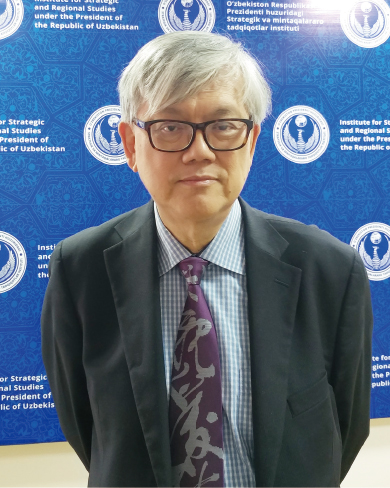
For a very long time, World Cup has been able to generate an enormous stream of revenue for the FIFA. At the same time, the event is also very favorable for the host country’s economic development. As such, many countries are attracted to host the event. Thomas Chan, Director of One Belt One Road Research Institute of the Chu Hai College of Higher Education, reckons that growth in the tourism industry is the most direct economic gain for the host country. The Brazil government, for example, pointed out that the economic gains came from tourists’ spending, the passenger throughput at the airport, employment, increased tax revenue, benefits on small to medium enterprises, as well as the burnished international image of the host country, etc in the last FIFA World Cup held in Brazil.
Image lifting of utmost importance
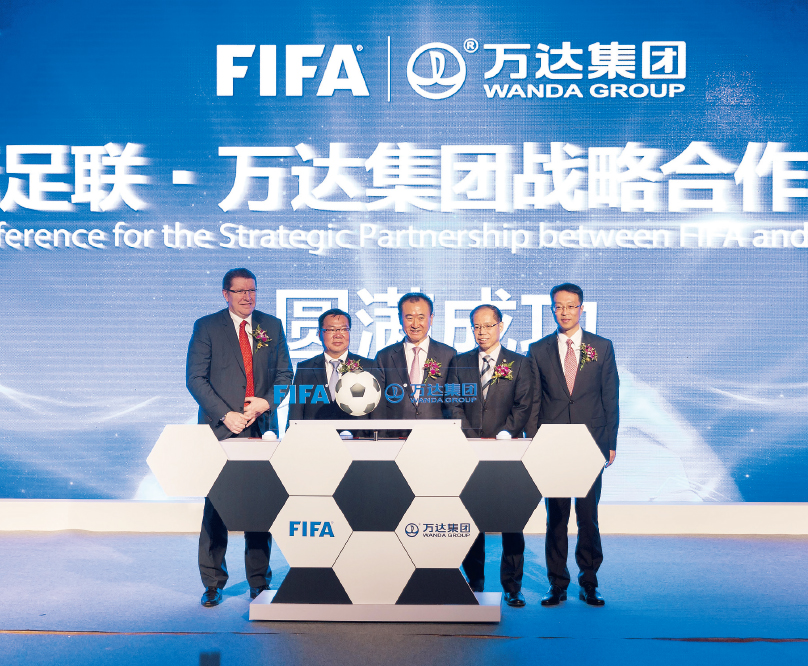 However, many reports have also quoted figures to reflect that the tourism effect has little help on the long term economic development of the host country. Some would even argue that the economic growth brought about by the tournament could hardly compensate the costs of organizing the event. Yet, Chan thinks that the tourism effect is only a first step to drive economic development; it is far more important for Russia to upgrade the country’s image. “As Russia overcomes the impact triggered by the US sanctions, and with the accelerated development in trade and Putin’s success in securing another term of office, this is the perfect moment for Russia to tie in its external publicity with FIFA World Cup.”
However, many reports have also quoted figures to reflect that the tourism effect has little help on the long term economic development of the host country. Some would even argue that the economic growth brought about by the tournament could hardly compensate the costs of organizing the event. Yet, Chan thinks that the tourism effect is only a first step to drive economic development; it is far more important for Russia to upgrade the country’s image. “As Russia overcomes the impact triggered by the US sanctions, and with the accelerated development in trade and Putin’s success in securing another term of office, this is the perfect moment for Russia to tie in its external publicity with FIFA World Cup.”
He explained that Russia is still generally regarded as an unsafe country, and many people from other countries still have a negative impression about Russia. So far, Russia’s trade and commerce are still considered unfamiliar in the international arena. Hosting the World Cup at this moment, therefore, can effectively drive long-term trade and economic development, strengthen the country’s image and lift its international standing. In fact, the persons-in-charge of the Local Organizing Committee of World Cup Russia once said, “It is difficult to evaluate the economic effect in the long run, but the positive impact on the image is the most important.”
Western companies hesitant about sponsorship
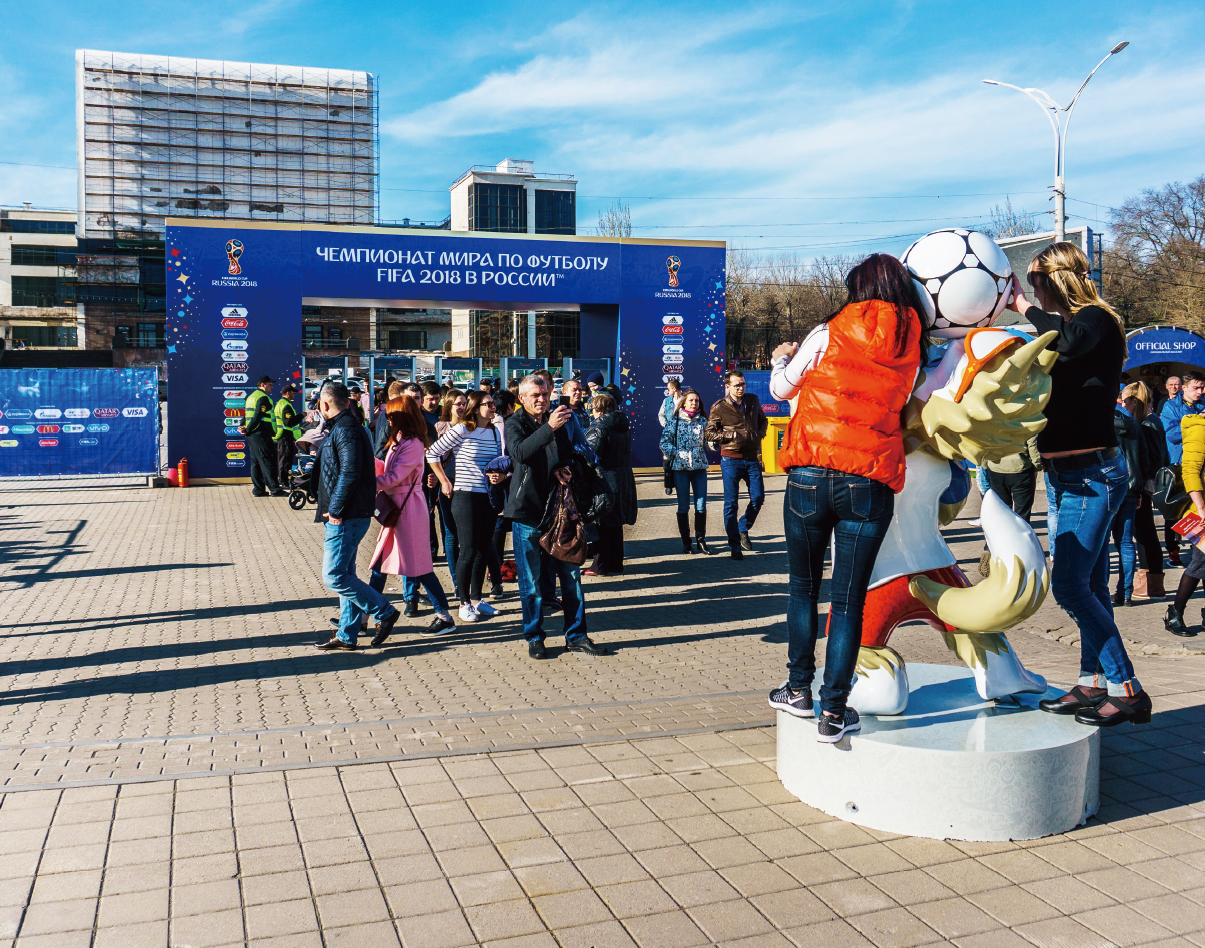 At present, the amount that Russia invested on World Cup is estimated at USD13 billion. Certain Russian economists estimated that, based on the growth rate of Q2 and Q3 of 2018, Russia’s GDP growth would not exceed 0.2 percentage point. A fiscal imbalance would render the World Cup a project that incurs loss.
At present, the amount that Russia invested on World Cup is estimated at USD13 billion. Certain Russian economists estimated that, based on the growth rate of Q2 and Q3 of 2018, Russia’s GDP growth would not exceed 0.2 percentage point. A fiscal imbalance would render the World Cup a project that incurs loss.
Throughout the past World Cup events, sponsorship cooperation (such as sports gears and beverages), TV broadcasting rights, advertisements and commercials, media rights, tickets to the matches, and even derivative merchandises are all important income sources for FIFA and the host country. However, the corruption scandals of FIFA in recent years and Russia’s extremely controversial international incidents have made many international brands hesitant about sponsoring this year’s World Cup. On the contrary, the number of Chinese sponsors reached the highest ever in history. In the last World Cup, Yingli Solar was the only Chinese company that became a global sponsor. This year, Wanda Group is a FIFA partner, while Hisense, Mengniu and VIVO are official global sponsors.
Chinese companies developing new markets through sponsorship
 Chan believes that foreign companies stop sponsoring this World Cup mainly because Western countries are still imposing sanctions on Russia to a certain extent. Over the past few months, the joint strikes on Syria’s chemical weapons arsenal launched by the US, the UK and France heightened the conflict between the West and Russia. Many brands are trying to avoid taking part in World Cup Russia to minimize any possible impact. On the other hand, Chinese companies are relatively more active in sponsoring this year’s World Cup. Chan reckons one of the reasons was the closer relationship between China and Russia. “In particular, in the face of the American trade sanctions, Chinese-Russian relationship is forced to become stronger and closer. In fact, China used to focus its Russian investment on minerals and energy. Yet, in recent years, it has been actively exploring and strengthening its presence in the consumer market in Russia. The renowned Chinese e-commerce giant Alibaba, for example, is gradually expanding its Russian market.”
Chan believes that foreign companies stop sponsoring this World Cup mainly because Western countries are still imposing sanctions on Russia to a certain extent. Over the past few months, the joint strikes on Syria’s chemical weapons arsenal launched by the US, the UK and France heightened the conflict between the West and Russia. Many brands are trying to avoid taking part in World Cup Russia to minimize any possible impact. On the other hand, Chinese companies are relatively more active in sponsoring this year’s World Cup. Chan reckons one of the reasons was the closer relationship between China and Russia. “In particular, in the face of the American trade sanctions, Chinese-Russian relationship is forced to become stronger and closer. In fact, China used to focus its Russian investment on minerals and energy. Yet, in recent years, it has been actively exploring and strengthening its presence in the consumer market in Russia. The renowned Chinese e-commerce giant Alibaba, for example, is gradually expanding its Russian market.”
An illustration of ever-closer Chinese-Russian relationship
The “Belt and Road” initiative of China, the active opening-up and devotion in globalization are all heightening the intention of Chinese companies to accelerate in tapping into international markets through mega sports events. “Chinese companies are riding on the World Cup to promote themselves to the outside world. This shows that China is willing to accept more international projects and globalization. At the same time, sponsorship also deepens the world’s impression on Chinese companies and brands. This is favorable for Chinese products to tap into the Russian market and beyond; the method is also very cost effective.” Chan believes that establishment of good Chinese-Russian relationship is highly beneficial for China’s expansion into the Eurasian Economic Union region.




